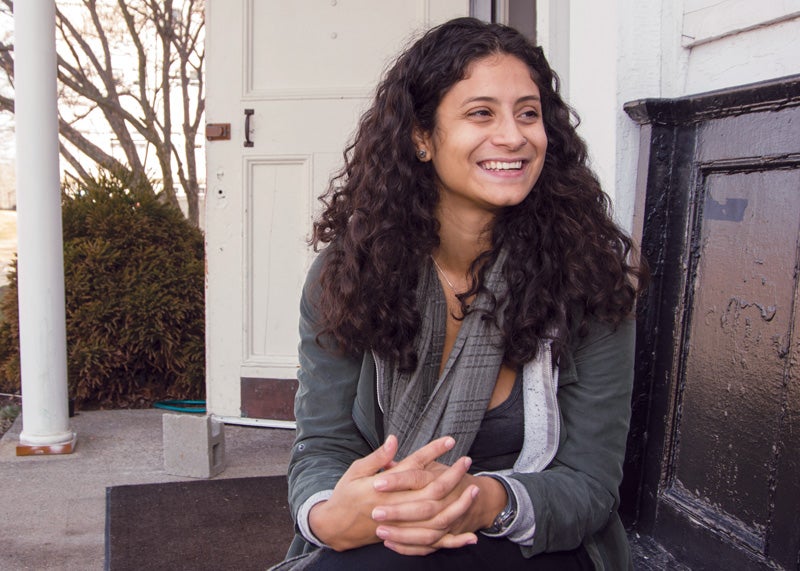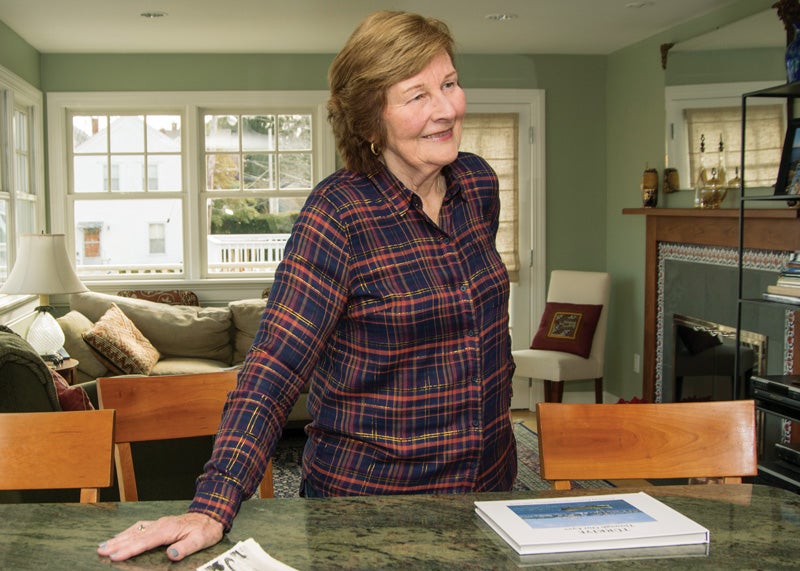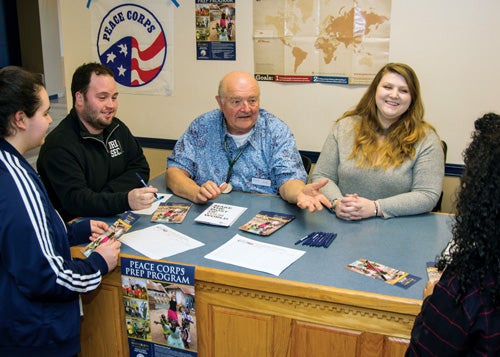Global Go-Betweens
A strong presence at URI since its founding in the 1960s, the Peace Corps is increasingly visible at Kingston thanks to a new prep program. Corps volunteers—perhaps our country’s most effective, if unofficial, ambassadors of goodwill—carry a global perspective and service mentality into their lives back home. Those qualities are more relevant than ever.
By Dave Lavallee
Shelby Maldonado ’09 had malaria twice and was in a car accident while serving in Zambia from 2010 to 2012.
Susan (Haynes) Ozbek ’63 traveled to Turkey in 1964. About six months into her tour, she was thrown out of bed one night by an earthquake. She wound up living in tents with other volunteers and villagers.
Neil Ross ’62, M.Ed. ’68, URI’s first Peace Corps volunteer, was sent with two fellow volunteers to a mountain valley in the Dominican Republic in 1962. There was no one there to greet them; they initially had no place to live and no project counterparts.
None of them would trade those experiences for the world.
Every Peace Corps volunteer we spoke to used similar phrases: It was the best experience of my life. It had a profound influence on me. It changed me and made me a better person.
Since 1962, a year after President John F. Kennedy established the federal program, 425 University of Rhode Island alumni have committed to the program’s two-year stint of service around the globe. Fifteen more are currently on assignment from Cambodia to Cameroon. This year, the University got a nod for the second year in a row as being a top volunteer-producing school.
“Peace Corps service is an unparalleled leadership opportunity that enables alumni to use the creative-thinking skills they developed in school to make an impact in communities around the world,” says Acting Peace Corps Director Sheila Crowley. “Many college graduates view Peace Corps as a launching pad for their careers because volunteers return home with the cultural competency and entrepreneurial spirit sought after in most fields.”
That combination of independent thinking and global savvy can be life defining, and means Corps cohorts tend to resist the isolationist rhetoric that currently informs debate about travel and immigration across Western Europe and the United States. “As Peace Corps volunteers, we worked hard to build positive images of America,” reflects Ross. “Many friends made 55 years ago remain in contact—we visit, share photos of grandchildren. Since the 2016 election, they have started asking me what’s happening here. They don’t like us losing our image as the world leader. And they’re worried they won’t be able to renew their visitor visas. There’s nothing I can say to reassure them.”
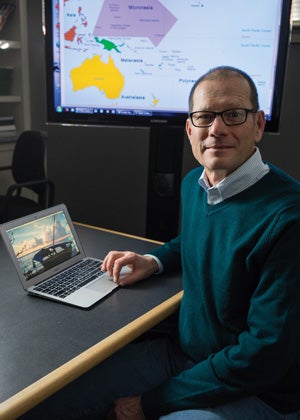
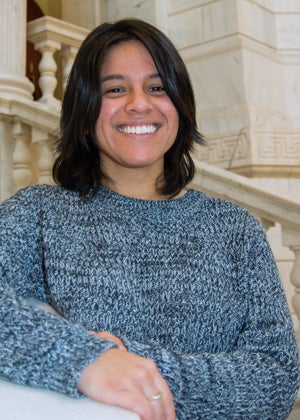
There and Back
“To this day, having been a Peace Corps volunteer informs everything I do,” says Shelby Maldonado, who had dreamt of serving in Africa since her high school days in Central Falls, R.I. A year after graduating, she boarded a 22-hour flight to Zambia. There, after an orientation and just days before traveling to the village she’ d been assigned, she fell ill. Despite a malaria vaccination, she had acquired the endemic disease. “For three days I was very sick, with a fever of 106,” she recalls. “I had to fly back to a hospital in Lusaka. That’s when the homesickness set in.”
Maldonado was alone and scared; her mother wanted her to return home. But her health rebounded, and she decided to go through with her term. Mlolo Village became her home base; from there, she used a mountain bike to travel among health clinics that served 17,000 people. “I wanted to make a contribution that would be substantial,” she reflects, “and to do that you had to work with the elders, the village chiefs. The villagers made me a home near the elders. They had never had an American live among them.”
One of her biggest challenges was getting the men, whose worth was based on the health and size of their cattle herds, to pay closer attention to their children.
It wasn’t all work: She went to Victoria Falls on the Zambezi River and on the trip, saw elephants with their calves. She was able to touch a lion.
Susan Ozbek’s time in Turkey was also transformative.
After a rigorous battery of tests, she flew to Istanbul in 1964. “Then we hopped on a ship, traveled down the Aegean Sea and took a bus to Salihli,” she says. “The buses were small and so all of the luggage was tied on the top.” Inside her creaky old bus, there were signs saying Allah’a emanet, which means God take care of us. “That was a little unnerving,” she remembers.
Once in Salihli, Ozbek taught high school English to classes of 50 to 60 students, some the same age as her. The students were focused and attentive, with impeccable manners, and were fascinated with Ozbek and her fellow volunteers, who were the first Americans they had met. “We were like movie stars,” she recalls. “Everyone would run out in the street to see us. They were very enamored of John F. Kennedy because they thought he was a good, strong leader. They knew he respected people from other countries.”
Although Salihli was an agricultural area, home to grape vines and olive trees, the high school had high standards, including a foreign language requirement that was so tough many students had to repeat it.
“It looked like something out of America from about 100 years before,” she says. “Horse carts and camel caravans went through the town. The simplicity impressed me.”
At night, she taught English to villagers, among them a local teacher called Turker Ozbek. They began chatting regularly in the teachers’ room over tea. The Corps discouraged romantic involvement with local residents, but the two continued to see each other, and married shortly after Ozbek’s service ended in 1966.
“My mother and aunt came to the wedding, and our students washed our car inside and out,” Susan Ozbek recalls. “A band played Hail, Hail, the Gang’s All Here.” The couple moved to the Aegean coastal city of Izmir, where they raised their sons and lived until 1971. Then the family moved to Rhode Island, where Susan has been named a teacher of the year. But Turkey still called. “I took a sabbatical and went back to Turkey in 1998 to teach in Izmir,” she says. “After I finished teaching, my husband and I bought an apartment and stayed for two years. We returned to Rhode Island in 2000.”
Eight years later, while visiting Izmir, Turker passed away. “We were happily married for 44 years,” Susan says. “I spent so many wonderful years in Turkey with the Peace Corps and with my husband and sons. I go back to visit twice a year to see relatives and friends.”
For Neil Ross, the lifelong connection formed as a volunteer has been to the Corps itself. After his two-year tour in the Dominican, Ross became a Peace Corps recruiter. Then he created and taught in a vocational training program in the new Job Corps in Kentucky; returned to URI for a master’s degree in education; and was hired by URI in the new Sea Grant program as New England’s first extension agent. He oversaw URI’s Peace Corps training program in 1981, and after 18 years with URI, left to create and run the nonprofit International Marina Institute. He is one of the founders of URI’s year-and-half-old Peace Corps Prep program, serving as alumni coordinator.
“I was a self-limiting person until the Peace Corps,” says Ross, who now lives in Kingston with his wife, Nancy, who volunteered with the Corps in Thailand. “When faced with a difficult task I had never done before, I often didn’t try. Peace Corps placed me in situations that were totally unknown to me—a new country, a new language, new food and a new culture.”
His initial assignment called for him to work with other volunteers in controlling forest fires in the mountains of the Dominican Republic (photo in our companion post, “More Global Go-Betweens”). But he felt some of the other volunteers were stronger firefighters, so he began teaching English to high school students and adults, including teachers. He also helped form an agricultural cooperative.
“I became a community organizer, a programmer and an innovator,” Ross says. “I had never taught English, but my Peace Corps training had taught me I could do more than I thought I could.”
During his service, a local priest asked him to become the village’s scoutmaster for a troop of 22 Boy Scouts. That small assignment led to a lifetime commitment—Ross has been honored for his local, national and international service to scouting.
In the first of many return trips to the Dominican Republic, Ross wound up talking with a former Scout. As they chatted, the younger man told Ross that his father had wanted him to quit school and get a job, but he replied: “Neil graduated from high school, so I am going to finish high school.” When he finished high school, his father again told him to get a job, but he said: “No, I am going to college, because Neil went to college.” Now, says Ross, he is a doctor of dentistry in his mountain village and visits Ross regularly.
Watching Ross’s eyes fill up with tears as he recounts the tale, it’s hard to say who got the most out of the relationship. Of thousands, perhaps millions, of stories like this—intensely personal, undeniably tangible—is the Peace Corps made. •
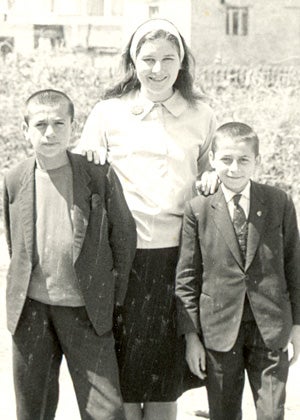
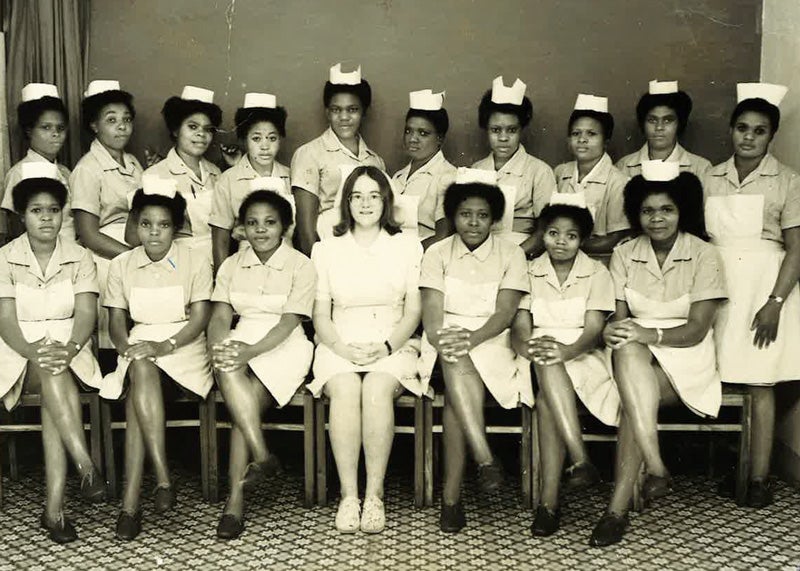
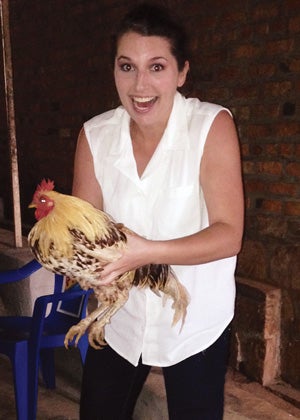
Preparing for Peace Corps
In May, the University of Rhode Island wrapped up its first year with the Peace Corps Prep program, which prepares students for service with the Peace Corps or other international aid groups. It’s the only such program in Rhode Island, reflecting the University’s status as a top volunteer-producing Corps school—in 2017, URI ranked 21st nationally on the Peace Corps’ list of medium-sized schools, up from 25th last year.
Prep students benefit from seminars by former volunteers and guidance from URI admnistrators about requirements, from a foreign language to study-abroad experiences. It’s “a roadmap,” says Nancy Stricklin, assistant to the provost for global strategies and academic partnerships and administrator of the Peace Corps Prep program. While completion does not guarantee admittance to the Peace Corps, it does give those who complete it an advantage. And in any case, Stricklin says, some students “might not want to commit to two years in the Peace Corps. But they might still be interested in some type of international service.”
Students say it’s a good dose of realism. “You can prepare yourself mentally,” says Tabatha Lewis ’18, an environmental sciences major who is one of 26 students enrolled in the program. She is planning to enroll in French classes next year in hopes of eventually serving in Africa. “I have always been fascinated by Africa, and would like to work on clean water issues, sewage treatment and septic systems to prevent water-borne illnesses,” says the Connecticut native.
Lizz Malloy ’17, a journalism major who minored in sociology and wildlife conservation, said the Prep program taught her something fundamental: “The importance of working with people, instead of trying to save them. You’ll never create anything sustainable if saving people is your goal.”
Plus, adds Malloy, who hails from Wareham, Mass., “It’s nice to be around people who have similar interests and who are going through the same process.”
Former Peace Corps volunteer Michael Rice, professor of fisheries, animal and veterinary science and the academic coordinator for the program, says students from a variety of majors can find a role.
“The Peace Corps needs those with skills in public health, agricultural and wildlife management, engineering, humanities, social sciences and education,” says Rice, who brings his J-term winter break classes to the Philippines, where he volunteered. •
Editor’s Note: Writer Dave Lavallee found so many stories from Peace Corps alumni—we simply couldn’t fit them all here. Read “More Global Go-Betweens,” for more on some of the alumni we profiled here, as well as stories from other Peace Corps volunteers.
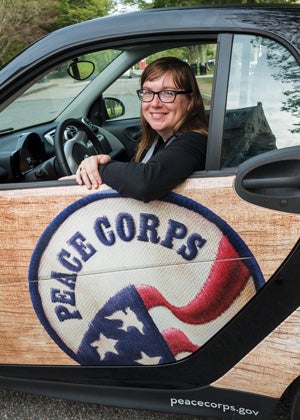
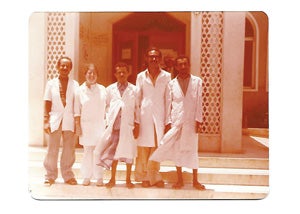
 Home
Home Browse
Browse Close
Close Events
Events Maps
Maps Email
Email Brightspace
Brightspace eCampus
eCampus



